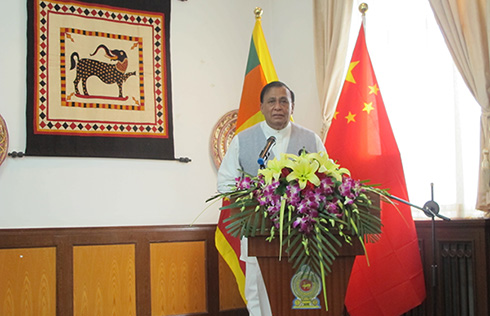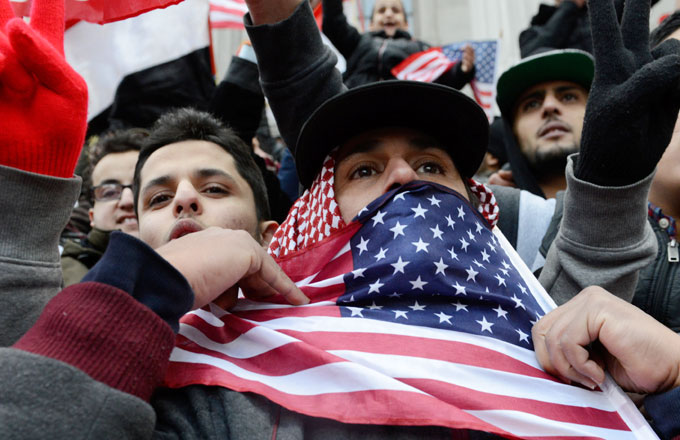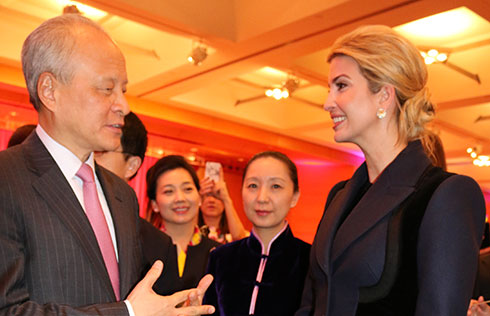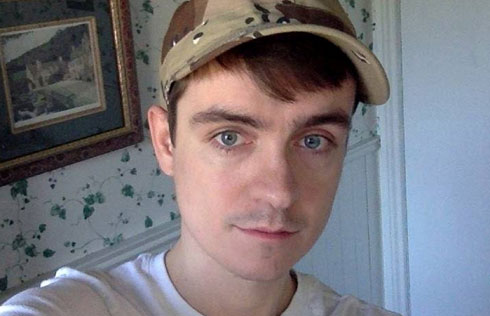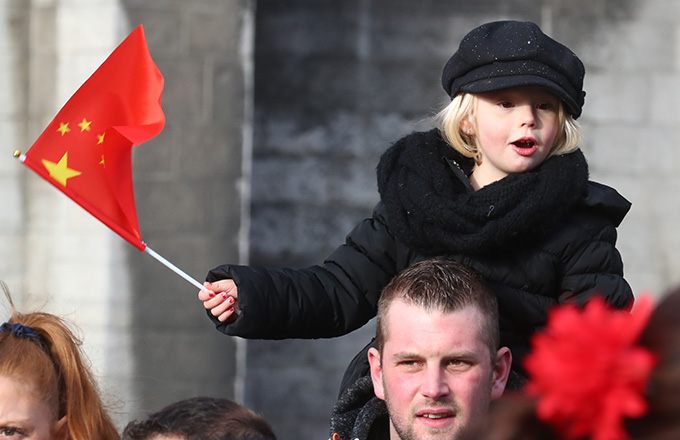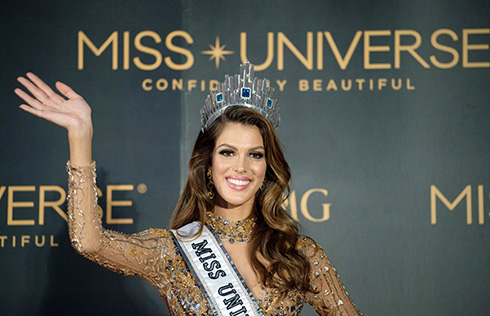Donald Trump retains direct tie to businesses, documents show
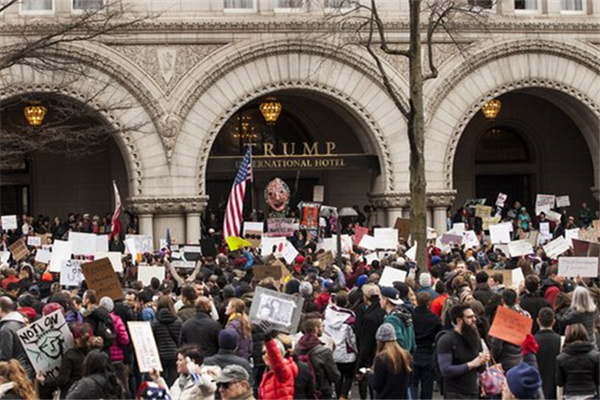 |
|
Demonstrators gather outside of the Trump Hotel International in Washington last month. [Photo/Agencies] |
New documents confirm that Donald Trump retains a direct tie to his business interests through a revocable trust overseen by one of his adult sons and a longtime executive of the Trump Organization.
The president is the sole beneficiary of the Donald J Trump Revocable Trust, which is tied to his social security number as the taxpayer identification number, according to documents published online by the investigative nonprofit ProPublica.
Trump can revoke the trust, which was amended three days before his inauguration, at any time.
The details about the trust were included in a 27 January letter to the Washington liquor board that notes Donald Trump Jr, the president's eldest son, and Allen Weisselberg, the company official, are its new trustees. The Trump trust holds a liquor license for the hotel that opened last fall in the federally owned Old Post Office building. A provision in the lease, signed in 2013, for that building prohibits an elected official from benefiting from the property.
The trust contains a mix of cash from Trump's sales of stock investments over the summer and his physical and intellectual properties, such as Trump Tower in New York, Mar-a-Lago in Florida – the so-called "winter White House" where the president is spending this weekend – and branding rights.
The details align with what Trump and attorney Sheri Dillon outlined at an 11 January news conference about Trump's plan for what would become of his global business empire while he is president.
Previous ethics advisers to Barack Obama and George W Bush and the leader of the Office of Government Ethics have said Trump has not gone nearly far enough to absolve himself of potential conflicts of interest. They have also raised concerns about his appointment of his son-in-law to a White House post, and filed suit alleging that Trump has violated the constitution’s ban on profiting from foreign governments.
Trump's two adult sons and Weisselberg are running the company while Trump is president, but Trump himself still financially benefits from it, the documents suggest. Precedent has been for presidents to sell off their holdings and place the cash into a truly blind trust – not one overseen by a family member – before taking office, even though there is no legal requirement to do so.
The president's sons have already returned to the White House since Trump's inauguration, attending an announcement by their father a nominee to the supreme court. Before his inauguration, Eric Trump traveled to Uruguay for a business trip whose costs reportedly totaled $97,830 to taxpayers.
Far stricter ethics rules govern top administration officials and cabinet members than the president himself. For example, Secretary of State Rex Tillerson, the long-time chief executive officer of Exxon Mobil, left the energy company, sold off his millions of shares and put the cash into a trust to be overseen by a third party.
On Friday, Vincent Viola, a billionaire Wall Street trader and Trump's nominee for army secretary, withdrew from consideration, saying untangling himself from his business would prove too difficult.
Representative Elijah Cummings, a Democrat, said in a statement that the president had failed to address fears that he is profiting from the influence of the White House, for instance by trying to sell hotel rooms to diplomats at his Washington property.
"This legal concoction from President Trump's lawyers does nothing to address his conflicts of interest or the breach of the lease for his hotel," Cummings said in a statement.




